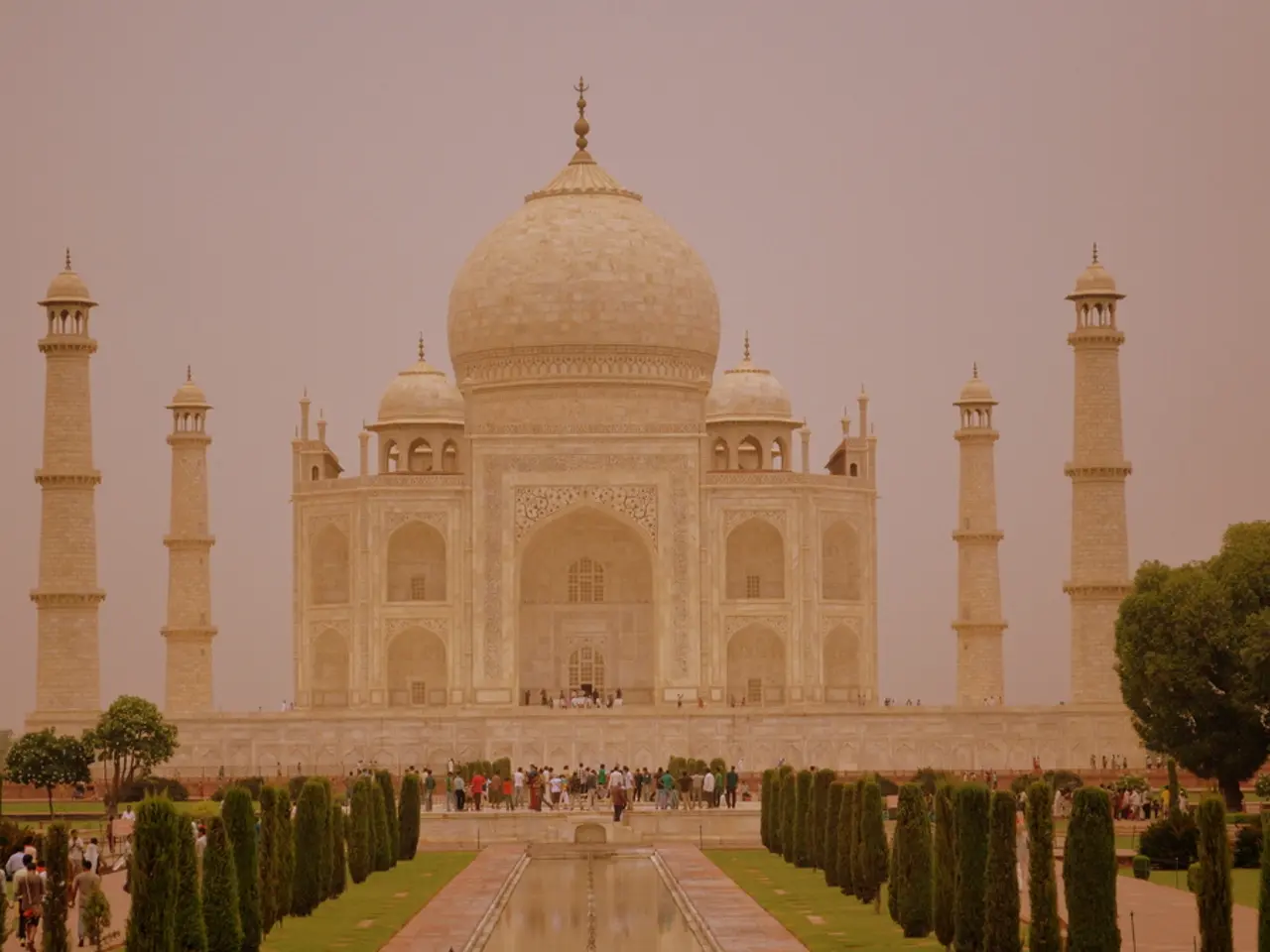"Revealed: A woman recounts chilling experiences of the 1947 Partition atrocities"
In the tumultuous year of 1947, eight-year-old Sudarshana Kumari found herself in the midst of the Partition of India, a historic event that would change millions of lives forever. Born in the Sheikhupura district, now part of Pakistan's Punjab province, Sudarshana's life was about to take a dramatic turn.
Living near a woodworking plant, Sudarshana and her mother shared a peaceful existence. However, on a fateful night, a neighbour warned them of the plant being incinerated by rioters. With the trunk containing a milas (bowl), a ladle, and a pot in her mother's hands, they embarked on a frantic escape, jumping over rooftop walls to evade the danger below.
The rioters, with their faces masked by thick turbans and armed with spears and guns, posed a constant threat. The low walls of the Sheikhupura Civil Headquarters were not enough to provide safety, so Sudarshana and her mother sought refuge in an ancient valley, joining other displaced persons in search of safety.
Their journey led them to the Wagah Border, where Sudarshana recalls more than 300 people being stuffed into two trucks "like animals" and unloaded near the border. From there, they spent time in refugee camps, but eventually, they established a semblance of stability in their new country in India.
During their ordeal, Sudarshana witnessed unspeakable horrors. Her worst traumatic memory was the brutal murder of her uncle's entire family, including his one-year-old daughter. One of her uncle's daughters miraculously escaped, even though she was shot, and received life-saving first aid at a hospital.
In the charred bungalows of civil lines officers, Sudarshana played with friends, rummaging through half-burnt materials. She discovered two pataris (wooden boxes with lids) and a little trunk, which she stored her old dolls in until she was in the eighth grade. These pataris would later become precious keepsakes, as she carried them with her upon marriage, giving them to her sisters and retaining the trunk.
The Partition of India resulted in the largest mass migration in history, with over 14 million people moving across newly drawn borders. Communal strife was prevalent on both sides of the newly established border, making the journey for many children and families a perilous one.
Though specific details about Sudarshana Kumari's life after the Partition are scarce, her story serves as a poignant reminder of the hardships faced by countless individuals during this tumultuous period in history. For those interested in learning more about the Partition era, numerous accounts and memoirs are available, providing a deeper insight into the experiences of those who lived through it.
War-and-conflicts and politics played a significant role in Sudarshana Kumari's life, particularly during the Partition of India in 1947. General news about the region's unrest and the subsequent communal strife were prevalent, offering little solace to families like Sudarshana's who were forced to flee their homes.




